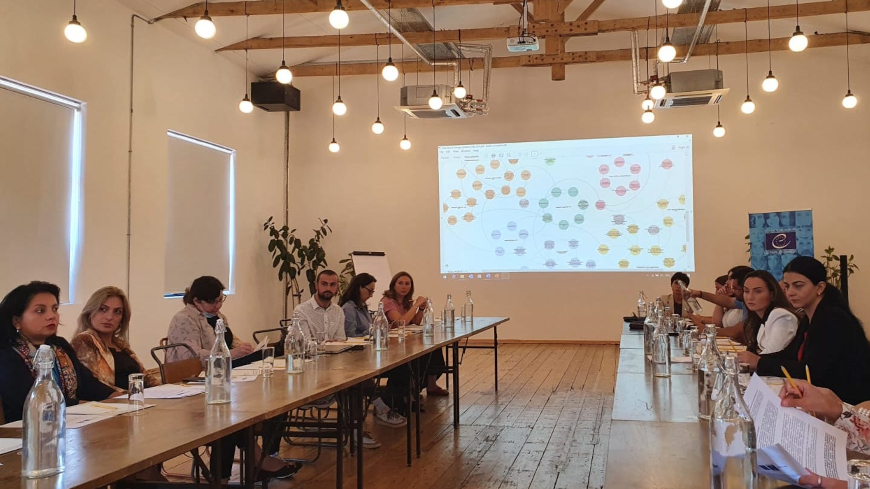Representatives of the Public Defender’s office, Prosecutor’s office, Central election commission, education and training practitioners, various human rights, and minority civil society organisations in Georgia, participated in a roundtable that focused on the role of awareness-raising, counter-speech, and education in combatting hate speech. During the meeting, participants exchanged on the recommendations and proposals made in the systematic mapping report of national responses to hate speech in Georgia.
The report shows that the primary source of discrimination and hate speech, is the lack of respect for fundamental rights, the principles of equality, lack of respect for diversity, deeply rooted stereotypes, misinformation, and related factors. Georgian legislation ensures that the learning environment in public schools shall be non-discriminatory and religiously neutral. Despite this, the stakeholders participating in the mapping process raise concerns about frequent violations of these principles and the stereotypical perceptions held by public-school teachers.
Participants to this round table, discussed ways on how Georgian stakeholders can apply awareness-raising, counter and alternative narratives, media literacy and education to combat hate speech and intolerance. The key to addressing hate speech is that all stakeholders (the government, media, and the civil society) should take their part of the responsibility and unite efforts to:
- spread counter speech,
- fight misinformation,
- raise awareness among the population and
- implement joint educational activities.
This activity was organised in the framework of the regional project “Strengthening access to justice through non-judicial redress mechanisms for victims of discrimination, hate speech and hate crimes in the Eastern Partnership,” funded by the European Union and the Council of Europe, implemented by the Council of Europe in their Partnership for Good Governance II 2019-2022.
The systematic mapping report of national responses to hate speech in Georgia [English] [Georgian]





